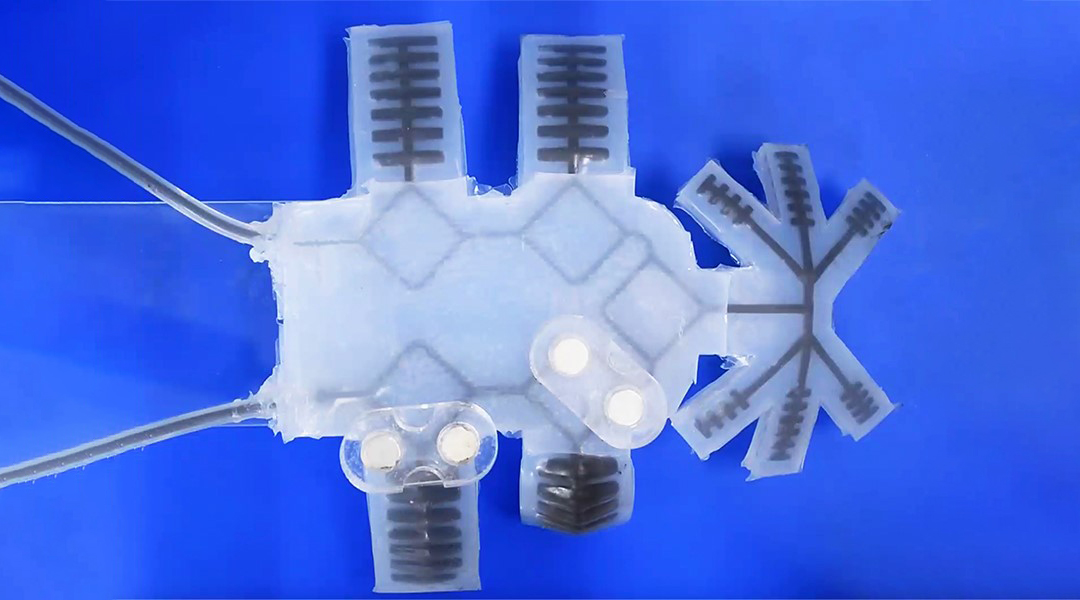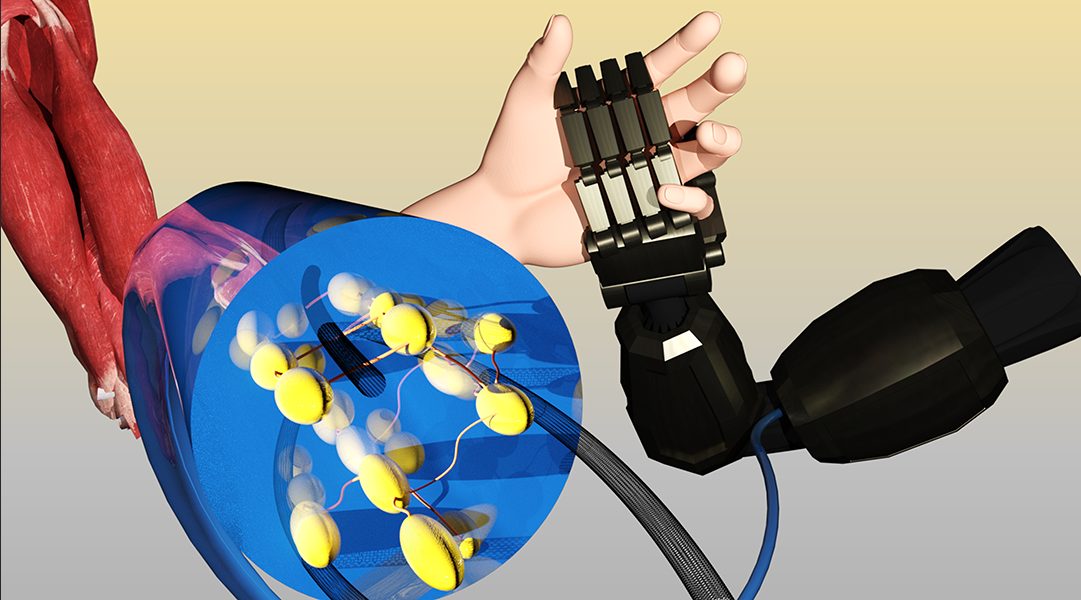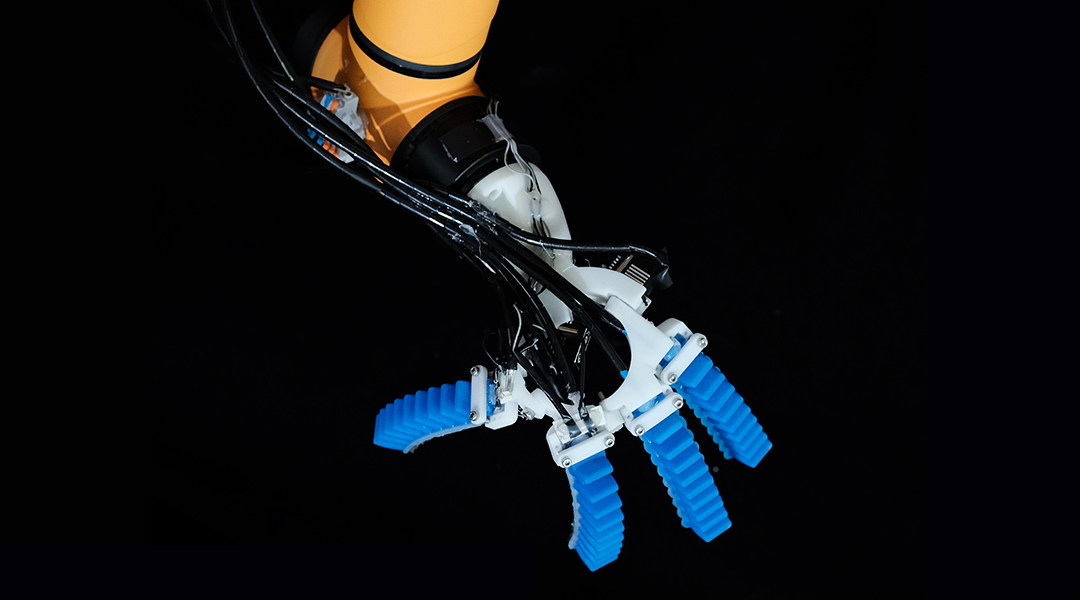Rigid elements are holding soft robots back from their full potential, and new research suggests swapping in fluid-based systems.


Rigid elements are holding soft robots back from their full potential, and new research suggests swapping in fluid-based systems.

Although the idea of soft robots in space exploration is still far from becoming a reality, there are obvious advantages that are driving researchers to pursue the possibility.

A new strategy allows researchers control robotic movement using fluids, creating flexible, untethered systems with promising applications.

Researchers develop dual-responsive muscle-like soft actuators with both dexterity and high mechanical strength.

Researchers design a bio-inspired batoid robot from non-toxic hydrogels operated with Au microelectrodes.

Soft robotic tentacles that can be manipulated using pressurization have been developed by the Whitesides group at Harvard.

Groundbreaking soft sensors enable robots to both see and feel, paving the way for robots that can autonomously interact with and understand their environment.

A soft, biodegradable actuator that could drive the motion of biodegradable robots and a future in symbiosis with human operators.

The replacement of rigid parts could help robots more closely mimic the humble worm to help them squeeze into tight spots.

A new soft microrobot harnesses electromagnetic and thermal energy at the nanoscale to self-assemble from colloidal nanomachines.